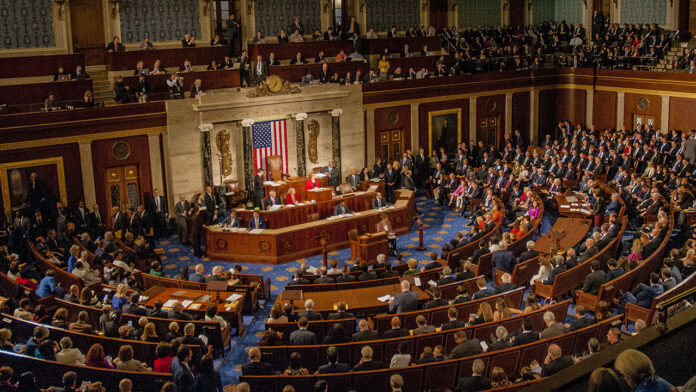U.S. President Donald Trump secured a critical win on Sunday as his sweeping tax-cut bill advanced out of the House Budget Committee, overcoming days of internal Republican discord over spending cuts.
The legislation, which aims to extend Trump’s 2017 tax cuts and ramp up defence and immigration funding, is now one step closer to a full House vote expected later this week.
The bill moved forward during a rare Sunday night session after four hardline Republicans who had stalled the measure on Friday agreed to allow it to proceed. The lawmakers continued to push for deeper cuts to federal spending, particularly to Medicaid and green energy incentives introduced by Democrats, in behind-the-scenes negotiations with House leaders and White House officials.
“We’ve made progress this weekend but we didn’t get nearly far enough,” said Representative Chip Roy, one of the conservative holdouts, after the panel’s vote.
The legislation is projected to significantly impact U.S. fiscal policy. It would reduce taxes on tipped and overtime income, two Trump campaign pledges, and inject additional funding into border security and defence. However, it would also add between $3 trillion and $5 trillion to the current $36.2 trillion national debt over the next decade.
Moody’s Investors Service cited the nation’s growing debt as a key reason for downgrading the U.S. sovereign credit rating last week. The agency projects U.S. debt could reach 134% of GDP by 2035 without substantial fiscal reforms.
Treasury Secretary Scott Bessent dismissed the downgrade in televised remarks on Sunday, arguing the proposed tax cuts would generate enough economic growth to mitigate fiscal concerns. Trump has maintained that the plan will ultimately balance the budget, with support from his newly created Department of Government Efficiency, led by Elon Musk. However, cost-cutting efforts have thus far fallen short of stated goals.
The bill now heads to the House Rules Committee, where it could undergo amendments ahead of a floor vote. House Speaker Mike Johnson is aiming for passage before the Memorial Day holiday on May 26.
Still, divisions remain within the Republican majority. Some moderates are resisting proposals to sharply reduce Medicaid and nutrition assistance, citing concerns about the bill’s impact on voters. According to current estimates, the plan could remove 8.6 million people from Medicaid coverage.
Despite internal party friction, Johnson defended the legislation as necessary to stabilize the economy. “Moody’s is not incorrect,” he said. “We’re talking about historic spending cuts. I mean, this will help to change the trajectory for the U.S. economy.”
The broader fiscal debate continues as the U.S. approaches a critical debt ceiling deadline this summer. Treasury officials have warned that the government could run out of cash by August unless the limit is raised, heightening fears of a potential default.
Senator Chris Murphy, a Democrat from Connecticut, criticized the Republican approach, warning that the downgrade and proposed tax cuts risk triggering higher borrowing costs and economic instability.
The bill’s progression marks a rare legislative victory for Trump and underscores the intensifying political struggle over America’s long-term fiscal direction.























